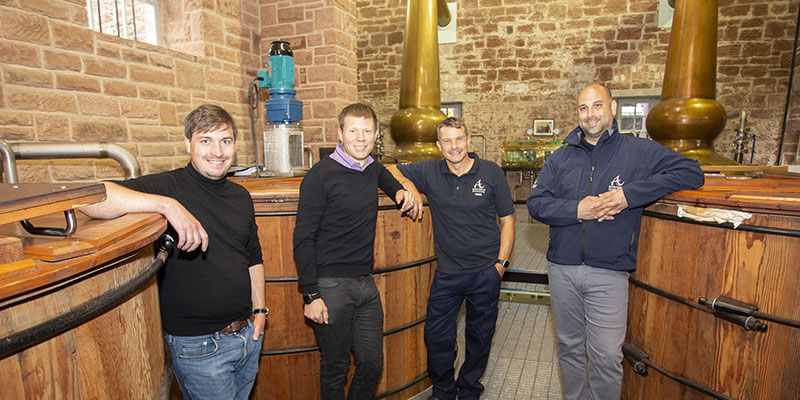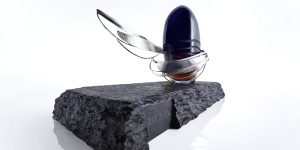A whisky distillery in Dumfries & Galloway has been chosen to trial groundbreaking new energy storage technology that could help replace fossil fuels.
The £3.6m trial, funded by the Department for Energy Security & Net Zero, will see a ‘decarbonisation machine’ installed at Annandale Distillery in Annan and used to produce a carbon-neutral whisky.
New University of Edinburgh offshoot Exergy3 has developed the technology, which it says can replace up to 100% of fossil fuels currently used in high temperature industrial processes.
Currently, around half of greenhouse gas emissions worldwide come from high temperature processes that are in widespread use in the food and drink, and many other, industries.
Exergy3’s modular energy storage system instead takes excess renewable energy from the National Grid and stores it at temperatures of up to 1200° C with minimal energy losses.
The team says its technology can store up to 36 MWh of thermal energy on the footprint of a 40-foot shipping container, and can also be easily transported and installed on site.
If you’re wondering how much 36 MWh of energy is, it’s the amount of electricity the average UK house would use in 12 or so years.
Annandale Distillery produces two types of single cask single malt whisky: Man O’Sword (peated) and Man O’Words (unpeated) in addition to a premium blended whisky Storyman, created in association with actor James Cosmo.
Its co-owner, Professor David Thomson, said: “Our distillery is on a journey towards net zero. Being able to raise all of the steam we need via green electricity would be a massive step forward for us, and for the Scotch whisky industry as a whole. We look forward to partnering with Exergy3 on delivering this really important project.”
Other potential applications of the technology, range from process heat provision for large-scale industry to decarbonising buildings through residential heating networks.
It was invented by Dr Adam Robinson of Edinburgh University’s School of Engineering, now chief technology officer at Exergy3. His former teaching assistant Dr Markus Rondé is the company’s chief executive.
Explaining the decarbonisation machine, Rondé said: “Our system charges quickly, can store more energy at higher temperatures than other systems, with less thermal energy loss, and is easily transported and installed with minor disruption of the user’s site.
“In my view, this technology is a game changer in the race to net zero, as we believe that we will be able to offer a commercially viable pathway to decarbonisation to industrial energy users within the next few years.”
The project has been supported by the University of Edinburgh’s commercialisation service, Edinburgh Innovations. It has also received a £400,000 investment from Scottish Enterprise in addition to £200,000 from the Scottish Enterprise High Growth Spin Out Programme.




